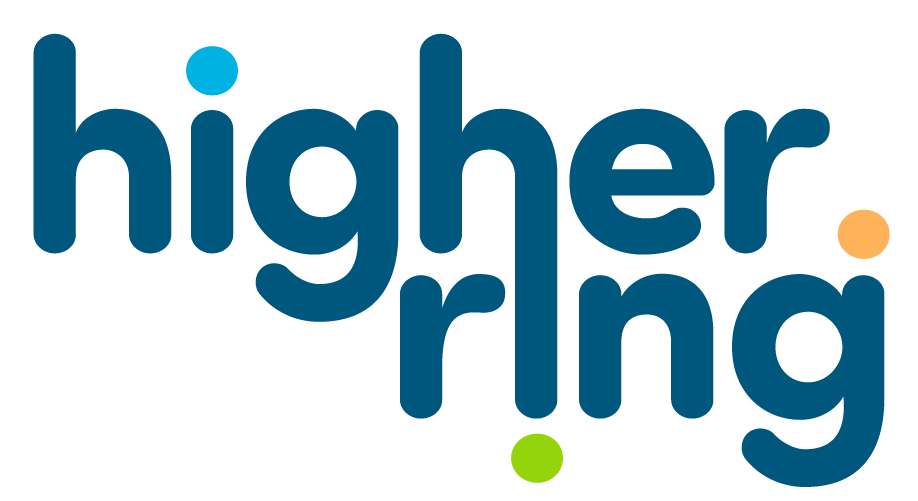8 Tips for Small Business Software Planning
How to implement and automate the best software for your business processes.
By leveraging ERP systems for inventory management, CRM systems for customer contact, and easy plug-and-play APIs to connect them all together, HigherRing clients build flexible yet powerful systems while keeping their labor costs low. When wielded effectively, the right tools become engines for efficiency, productivity, and revenue growth. Smart integration strategies also keep our client’s team happier by reducing data entry and keeping systems aligned with up-to-date inventory values and easy order entry.
Most small businesses see the high price tags and long time commitment of automating their software, and they get understandably overwhelmed. Here are our best practices for selecting, configuring, and utilizing new systems so you can be protected from the dreaded software burnout:
1. Set Clear Goals
Before diving into software implementation, nail down your objectives and tie them tightly to your business goals. Figure out precisely what functionalities you need from your software to drive your operations and strategic plans forward.
2. Choose Wisely
Take the time to research and evaluate software options thoroughly. Look for the following to ensure you’re getting the right fit for your business:
scalability
customization options
ease of use
vendor and partner support
integration capabilities
Many systems don’t easily connect to one another, so we recommend understanding the interaction capacity of your current software with those you are considering. HigherRing Client Specialists have experience working with HubSpot, PipeDrive, Help Scout, Gorgias, Netsuite, DEAR, Fishbowl, Shipstation, Shopify, SPS, Amazon, Celigo, Far App, MailChimp, WooCommerce, Quickbooks, Xero, Gusto, Justworks, and more!
3. Seamlessly Integrate
Integration is key for maintaining data consistency and workflow efficiency across your systems. Opt for solutions that offer robust integration capabilities or utilize middleware platforms to make data exchange between systems a breeze. Be cautious of middleware platforms with unreasonable yearly fees—sometimes labor is truly a savings over software depending on the frequency of the activity and complexity of the software deployment.
4. Standardize Data Management
Establishing standardized data management practices ensures data accuracy, integrity, and accessibility across your ERP and CRM systems. Define protocols, validation rules, and governance policies to keep your data quality high.
5. Empower Your Team
Provide comprehensive training and support to empower your team to make the most of software functionalities. Encourage them to explore advanced features and tools that can supercharge their workflows and productivity. Our Client Specialists have a wealth of experience across operational software and are always working to make software as manageable and simple as possible for our clients.
6. Customize Sparingly
While customization can tailor software to your needs, too much can lead to complexity and compatibility issues. Prioritize configurations over customizations to keep things running smoothly. It’s important to remember the monetary cost of customization is almost always higher than the cost of software.
7. Monitor Continuously + Stay Updated
Monitor your software's performance closely to spot inefficiencies and opportunities for optimization. If needed, update your software to benefit from the latest features, patches, and security fixes. Use analytics and reporting tools to track key metrics and guide data-driven decisions. Train your team to consistently look for data anomalies or stuck processes. Having someone who knows where to look when something is wrong is also vital to any software expansion.
8. Ensure Security + Compliance
Implement robust security measures and compliance controls to protect sensitive data and mitigate risks. Regularly audit user access, encryption protocols, and compliance with regulations to uphold data privacy and integrity. Internally, our Client Specialists get regular security training, and we take on advising best practices for security and privacy compliance.
To streamline operations, boost productivity, and fuel sustainable growth in today's fiercely competitive marketplace, your business will need to harness the full potential of ERP, CRM, and API software. If you don’t know where to start with planning and implementing new software, reference back to these best practices or let the HigherRing team help you cut through the clutter!
Author Bio
Hey there! I'm Katie, a Lead Client Specialist on the HigherRing eCommerce/CPG team. I navigate the exciting world of social media, ERP, CRM, and API software, while also mastering operations and supply chain development. When I'm not optimizing processes, you can find me indulging in delicious vegan food or reveling in all things green.





